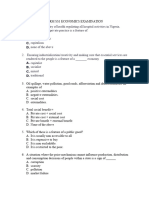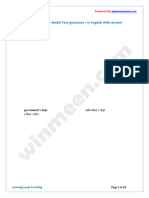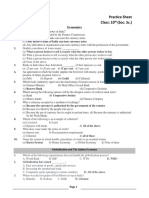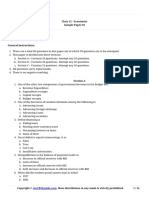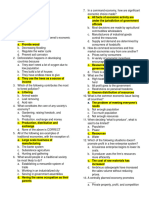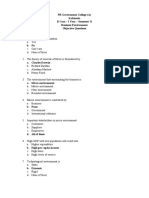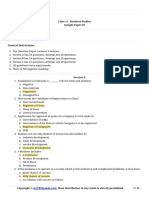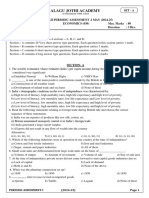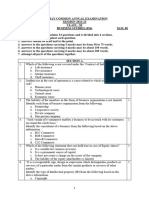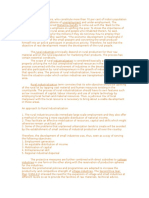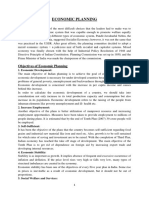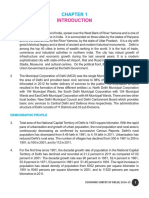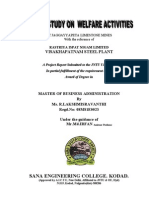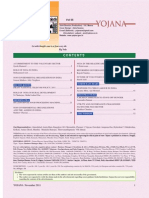0 ratings0% found this document useful (0 votes)
0 viewsIndian-Economy-Model-Test-Questions-3-in-English-With-Answer
Indian-Economy-Model-Test-Questions-3-in-English-With-Answer
Uploaded by
rockybhai212f79a358i8wUseful for the Group exam Aspirants
Copyright:
© All Rights Reserved
Available Formats
Download as PDF, TXT or read online from Scribd
Indian-Economy-Model-Test-Questions-3-in-English-With-Answer
Indian-Economy-Model-Test-Questions-3-in-English-With-Answer
Uploaded by
rockybhai212f79a358i8w0 ratings0% found this document useful (0 votes)
0 views10 pagesUseful for the Group exam Aspirants
Copyright
© © All Rights Reserved
Available Formats
PDF, TXT or read online from Scribd
Share this document
Did you find this document useful?
Is this content inappropriate?
Useful for the Group exam Aspirants
Copyright:
© All Rights Reserved
Available Formats
Download as PDF, TXT or read online from Scribd
Download as pdf or txt
0 ratings0% found this document useful (0 votes)
0 views10 pagesIndian-Economy-Model-Test-Questions-3-in-English-With-Answer
Indian-Economy-Model-Test-Questions-3-in-English-With-Answer
Uploaded by
rockybhai212f79a358i8wUseful for the Group exam Aspirants
Copyright:
© All Rights Reserved
Available Formats
Download as PDF, TXT or read online from Scribd
Download as pdf or txt
You are on page 1of 10
Economics & Commerce Prepared By www.winmeen.
com
Indian Economy Model Test Questions 3 in English With Answer
1. TIDCO is the abbreviation of
a. Tamil Nadu Information Development Corporation Limited
b. Tamil Nadu Industrial Development Corporation Limited
c. Tamil Nadu Investment Development Corporation Limited
d. Tamil Nadu Information Development Control Limited
2. On which of the following do people of India spend most of their income?
a. Clothing b. Food
c. Fuel and lighting d. Household durables
3. Which of the following was not a characteristic of our economy at the time of Independence?
a. we were expecting capital goods
b. India was industrially under developed
c. Indian farmers were following primitive methods
d. none of these
4. Which of the following does not contribute to the development of the Indian economy?
a. Population growth b. Rising Industrial output
c. Modern technology d. Green Revolution
5. Which Government undertaking is responsible for the management of public steel plants in India?
a. SAIL b. GAIL c. ONGC d. BHEL
6. A major irrigational project is one which covers the minimum area of
a. 2000 hectares b. 5000 hectares
c. 8000 hectares d. 10,000 hectares
7. Average size of land holding in India is
a.7 hectares b. 5 hectares
c. 4 hectares d. less than 2 hectares
8. Per capita income is calculated as
a. income of each state divided by its population
b. per head individual income divided by total population
c. gross national income divided by total population
d. total population multiplied by factor income
9. The minimum number of persons required to form primary co-operative society is
a. 2 b. 6 c. 10 d. 12
Note: Number of persons required – 25
10. Multinational is
a. a joint venture at government level between more than two countries
b. a company making use of foreign countries
c. an enterprise operating in many countries
d. a joint venture at private level between more than two countries
11. Agricultural Income is exempted from
a. Sales Tax b. Income Tax
Learning Leads To Ruling Page 1 of 10
Economics & Commerce Prepared By www.winmeen.com
c. neither Sales nor Income Tax d. Local Tax
12. Land ceiling for a small farmer to avail subsidy from Tamil Nadu Government
a. 2 hectares b. 3.5 hectares c. 5 hectares d. 2.5 hectares
13. Expand NABARD
a. National Bank for Agricultural and Research Development
b. National Bank for Agricultural and All India Rural Development
c. National Bank for Agriculture and Rural Financing
d. National Bank for Agriculture and Rural Development
14. Balance of Trade means
a. balance amount due to a foreign trader
b. balance amount due from a foreign dealer
c. the difference between the value of exports and imports
d. none of these
15. Consider the following statements:
I. EXIM Policy refers to export and import
II. EXIM Policy refers to export of Indian machineries
III. EXIM Policy refers to import of capital goods
IV.EXIM Policy refers to trade fairs in foreign countries
Of the statements:
a. I alone is correct b. I and II are correct
c. I, II and III are correct d. All are correct
16. Based on investment which industrial unit is called a Small Scale unit?
a. Rs. 50 lakhs b. Rs. 25 lakhs c. Rs. 60 lakhs d. Rs. 40 lakhs
17. How many Five year Plans have been implemented in India so far?
a. 7 b. 8 c. 5 d.4
th
Note: 11 Plan (2007-2012)
18. Who framed the fundamental principles of Taxation?
a. Adam Smith b. Marshall
c. R.K. Shanmugam Chettiar d. None of these
19. The main function of SIPCOT in Tamil Nadu is to
a. give only advice to entrepreneurs
b. provide balancing finance
c. provide raw materials
d. provide electricity
20. The condition of agriculture towards the national income of the country approximately is
a. 58% b. 54% c. 45% d. 41%
Note: 17.1%
21. The strategy for large scale industrialization was adopted for the first time in
a. First Plan b. Second Plan
c. Fourth Plan d. Fifth Plan
22. Which organization promotes trade?
Learning Leads To Ruling Page 2 of 10
Economics & Commerce Prepared By www.winmeen.com
a. STC b. MMTC c. ECGC d. UNICEF
23. The profit which can be legally distributed to the shareholders of a company in the form of
dividend is called
a. Secret Profit b. Capital Profit
c. Divisible Profit d. Correct Profit
24. If a single Director, his eligible share should be kept
a.2 months from the date of his appointment b. Until he retires
c. At the time of appointment d. None of these
25. Match List I with List II correctly and select your answer using the codes given below:
List I List II
a. Kimbal D.S.and Kimbal (Jr) D.S. 1. Co-operatives
b. Robert Owen 2. Scientific Management
c. F.W.Taylor 3. Sole proprietorship
d. Lord Lindley 4. Company
Codes:
a b c d
a. 3 1 2 4
b. 1 3 4 2
c. 3 2 1 4
d. 2 4 3 1
26. Consider the following statements:
Assertion(A): As per the partnership Deed, a legal heir of decreased, Mr. A is admitted as partner.
Reason(R): Mr.A is mad
Of the statements
a. Both (A) and (R) are true and (R) is the correct explanation of(A)
b. Both (A) and (R) are true and (R) is not the correct explanation of(A)
c. (A) is true , but (R) is false
d. (A) is false, but (R)is true
27. Distribution of free samples to the consumers is an example for
a. dealer promotion b. sales force promotion
c. consumer promotion d. trade promotion
28. The strategy of expansion of product line is called
a. Trading down b. Expansion of product mix
c. Development of new uses for the existing products d. Trading up
29. The promissory note, bill of exchange or cheque payable either to order or bearer is a
a. Government Instrument b. Public Instrument
c. Negotiable Instrument d. Foreign Instrument
30. An agreement with a minor is a
a. void contract b. voidable contract
c. valid contract d. none of these
31. Clearing house of Banks are normally held in
Learning Leads To Ruling Page 3 of 10
Economics & Commerce Prepared By www.winmeen.com
a. Bank of India b. IDBI
c. Reserve Bank of India d. State Co-operative Bank
32. Land Development Banks provide loans on
a. short term basis b. medium term basis
c. long term basis d. all bases
33. Sericulture Co-operative are concentrated in
a. Gujarat b. Assam
c. Uttar Pradesh d. Karnataka
34. Grapevine refers to
a. channel of formal communication
b. channel of informal communication
c. upward communication
d. downward communication
35. The functions of a modern office are classified into
a. basic and administrative b. primary and secondary
c. traditional and modern d. routine and changing
36. Who gave the concept of PODSCORB?
a. Lyndall Urwick b. Luther Gullick
c. Ralph Davis d. Peter F. Drucker
37. Which of the following accounts is prepared to find out the cost of good produced?
a. Trading Account b. Manufacturing Account
c. Profit and loss Account d. Balance Sheet
38. Refusing the payment of a cheque is called
a. Endorsement b. Special crossing
c, Dishonor d. Standing instruction
39. Which of the following is the leading Export item among Indian Plantation crops?
a. Coffee b. Rubber c. Spices d. Tea
40. The apex institution in the field of industrial finance is
a. RBI b. IDBI c. IFC d. ICICI
41. Among the following, which is not a mere cause for inflation?
a. Increase in money supply b. Increase in Government expenditure
c. Deficit financing d. Over-production
42. Reason for high birth rate is
a. the average age of marriage among females is low
b. depressed agriculture
c. lack of industrial development
d. family planning
43. Balance of trade refers to
a. value of invisible items of export and import
b. export surplus
c. value of visible items of export and import
Learning Leads To Ruling Page 4 of 10
Economics & Commerce Prepared By www.winmeen.com
d, value of visible and invisible items of export and import
44. Government of India appointed the Monopolies inquiry Commission under the Chairmanship of
a. Mahalanobis b. K.C. Dasgupta
c. Nehru d. Indira Gandhi
45. The essential part of a general crossing is
a. cross lines of the cheque b. three parallel lines
c. two parallel lines d. four parallel lines
46. The Central Bank of our country is
a. Central Bank of India b. State Bank of India
c. Indian Bank d. Reserve Bank of India
47. Match List I with List II correctly and select your answer using the codes given below:
List I List II
a. Dutt Committee(1969) 1. Industrial Licensing
b. Wanchoo Committee(1971) 2. Direct taxes
c. Raj Mannar Committee(1971) 3. Centra-State Fiscal Realations
d. Chakravarthy Committee(1985) 4. Monetary System
Codes
a b c d
a. 4 3 2 1
b. 1 2 4 3
c. 1 2 3 4
d. 4 1 3 2
48. Unfavorable balance to trade means
a. export is equal to import b. export is less than import
c. export is greater than import d. none of these
49. “Supply Creates its Own Deman”. Who said this?
a. Keynes b. Ricardo
c. Say d. Mill
50. Consider the following statements
Assertion(A): Per capita income is low in India
Reason(R): There is very low population in India
Of the statements
a. Both (A) and (R) are true and (R) is the correct explanation of(A)
b. Both (A) and (R) are true and (R) is not the correct explanation of(A)
c. (A) is true , but (R) is false
d. (A) is false, but (R)is true
51. The plan holiday period was
a. 1965-67 b. 1966-69 c. 1967-70 d. 1968-71
52. IDBI stands for
a. Industrial Development Bank of India
b. Indian Development Bank of Industries
Learning Leads To Ruling Page 5 of 10
Economics & Commerce Prepared By www.winmeen.com
c. Indian Domestic Bank of Industries
d. none of these
Note: Industrial Development Bank of India
53. Current A/C in a bank is normally opened by
a. individuals b. business firms
c. salaried persons d. none of these
54. The need-hierarchy theory motivation is given by
a. Maslow b. Herzberg c. McGregor d. Vroom
55. Stock exchange deals with the
a. second hand securities b. issue of shares
c. issue of debentures d. none of these
56. Sacrificing ratio is used at the time of
a. admission of a partner b. retirements of a partner
c. death of a partner d. dissolution of a firm
57. UTI is associated with
a. banking trade b. foreign trade
c. road transport d. investment trust
58. Long term solvency is indicated by
a. rate of return b. liquid ration
c. debt equity ratio d. capital gearing ratio
59. Inflation is beneficial to
a. debtor b. creditor
c. both debtor and creditor d. none of these
60. The main aim of monetary policy into
a. control smuggling b, eradicate tax evasion
c. regulate production d. regulate money supply
61. The international liquidity problem is attended by
a. UNO b. IMF c. Central Bank d. Nationalized Bank
62. Match List I with List II correctly and select your answer using the codes given below:
List I List II
a. Consumption 1. Perfect Competition
b. Production 2. Rent
c. Market 3. Utility
d. Distribution 4. Scale
Codes
a b c d
a. 2 3 4 1
b. 3 4 1 2
c. 1 2 3 4
d. 4 1 2 3
63. Which is the other name given to the average revenue curve?
Learning Leads To Ruling Page 6 of 10
Economics & Commerce Prepared By www.winmeen.com
a. Profit curve b. Average cost curve
c. Demand curve d. Indifference curve
64. Which is the oldest Scale Industry in India?
a. Cotton Industry b. Sugar Industry
c, Jute Industry d. Iron and Steel Industry
65. In India disguised unemployment prevails in
a. Agricultural sector b. Industrial sector
c. Transport sector d. Trade sector
66. Wheat is not suitable for growing in South India because of
a. winter are too warm b. low rainfall
c. early summer d. poor soil condition
67. The second Five year Plan gave importance to
a. Agriculture Development b. Industrial Development
c. Social Development d. Transport and Communication Development
68. Which one of the following Five Year Plan recognized human development as the core of all
development efforts?
a. The Third Five Year Plan b. The Fifth Five Year Plan
c. The Sixth Five Year Plan d. The Eighth Five Year Plan
69. The system of Indian economy is
a. capitalist b. mixed economy
c, socialist d. none of these
70. In which Five Year Plan eradication of poverty was main theme?
a. First b. Second c. Fourth d. Fifth
71. How many Nationalised Banks are therein India?
a. 6 b.14 c. 20 d. 21
Note: Now 19 banks(2010)
72. Product differentiation is a special feature of
a. Monopoly b. Perfect Competition
c, Monopolistic Competition d. None of these
73. When was NABARD formed?
a. 1982 b. 1992 c. 1972 d. 1962
74. Who is connected with Laissez Faire?
a. Adam Smith b. Kissinger
c. Keynes d. Ricardo
75. As per capita income increase, the share of agriculture in labour force
a. decreases b. increases
c. remains constant d. first increases and then decreases
76. Human capital formation refers to the process of
a. increasing the number of people
b. physical growth of capital
c. increasing knowledge, skills and capacities of people of the country
Learning Leads To Ruling Page 7 of 10
Economics & Commerce Prepared By www.winmeen.com
d. providing more facilities to the people
77. Who were the recipients of Nobel Prize in Economics?
a. J.E. Meade and Bertil Ohlin
b. Ragnar Myrdal and Jan Tinbergen
c. Gunnar Myrdal and Koopman
d. J.R.Hicks and Paul Samuelson
78. Unemployment which occurs when workers move from one job to another job is known as
a, seasonal unemployment
b. frictional unemployment
c. technological unemployment
d. cylical unemployment
79. Which of the following is not positively relevant to growth?
a. technology b. population growth
c. natural resources d. size of the country
80. The weakest economic group in India is represented by
a. Industrial workers b. Small and marginal farmers
c. Landless laboures d. Women workers
81. The aim of the economics planning should be
a. to increases the National income
b. to increases the Per capita income
c. to improve standard of living of the people
d. all of these
82. The First Five Year Plan was based on
a.Harrod-Domar model b. Friedman model
c. Rostow model d. Mahalanobis model
83. The most serious problem of India is
a. unemployment, not poverty b. Poverty, not unemployment
c, underemployment ,not poverty d. stagnation, not poverty
84. The percentage of the Indian urban population below the poverty line in 1989-90 was
a. 17% b. 18% c. 19% d. 21%
85. India’s agriculture after Independence
a. has improved steadily and has become fairly advanced
b. has improved only marginally and has created problems for the country
c. has shown very good progress
d. has recorded progress comparable to that of the advanced countries
86. Inequalities in product per worker in under developed countries are perhaps
a. less than in developed countries
b. more than in developed countries
c. the same as in developed countries
d. nothing is known
87. Development is impossible without
Learning Leads To Ruling Page 8 of 10
Economics & Commerce Prepared By www.winmeen.com
a. incentive to profit b. foreign aid
c, savings d. inflation
88. Developing countries rely on Industry
a. to grow rapidly
b. to train labour and absorb it into high paying jobs
c. for reasons of security and national pride
d. for all these
89. Per capita income rises when
a. GNP and population both increase at the same rate
b. GNP and population both remain constant
c. GNP increases faster than population
d. GNP increases slower than population
90. Under development is the result of
a. economic factors b. social factors
c. political factors d. economic, social and political factors all together
91. A closed economy is the one which
a. does not permit emigration b. does not immigration
c. does not permit foreign trade d. does not permit domestic trade
92. The First Five Year Plan formulated in the year
a.1947 b. 1950 c. 1951 d. 1956
93. Who appoints the auditor of a Joint Stock company?
a. Government b. Directors
c. Share holders d. None of these
94. Duration of the Eighth Five Year Plan is
a. 1990-95 b, 1991-96 c. 1992-97 d. 1993-98
95. Which of the following is not an employment programme?
a. National Rural Development Programme
b. Integrated Rural Development Programme
c. Jawahar Rozgar Yojana
d. Training of Rural Youth for Self employment
96. The expansion of abbreviation IADP is
a. Internal Agricultural Development
b. intensive Agricultural District Programme
c. Indian Agricultural Development Programme
d. Agricultural Development Programme based on Industrial atmospheres
97. Which one of the following is correctly matched?
a. Rabinson - Population theory
b. Malthus - Economic theory
c. Adam Smith - Father of Economics
d. Karl Marx - A Famous Economist
98. Consider the following statements:
Learning Leads To Ruling Page 9 of 10
Economics & Commerce Prepared By www.winmeen.com
Assertion(A): rice is the major crop in Tamil Nadu
Reason(R): People of Tamil Nadu eat rice in large quantity
Of the statements
a. Both (A) and (R) are true and (R) is the correct explanation of(A)
b. Both (A) and (R) are true and (R) is not the correct explanation of(A)
c. (A) is true , but (R) is false
d. (A) is false, but (R)is true
99. What is Deficit Financing?
a. Expenditure exceeding the Revenue b. The means of financing the deficit
c. Revenue exceeding the expenditure d. None of these
100. The main feature of our new economic policy is
a. foreign investment b. foreign trade
c. foreign technology d. foreign cosmetics
Learning Leads To Ruling Page 10 of 10
You might also like
- Series 65 Exam Practice Question Workbook: 700+ Comprehensive Practice Questions (2024 Edition)From EverandSeries 65 Exam Practice Question Workbook: 700+ Comprehensive Practice Questions (2024 Edition)No ratings yet
- 2022-2023 FT SS1 Econs ExamDocument7 pages2022-2023 FT SS1 Econs ExamCHIEMELA75% (4)
- Test Bank For Global 4 4th Edition Mike PengDocument9 pagesTest Bank For Global 4 4th Edition Mike PengPierre Wetzel100% (41)
- Project Proposal-Warehouse Rack - NewDocument53 pagesProject Proposal-Warehouse Rack - NewRashan Jida ReshanNo ratings yet
- Indian-Economy-Model-Test-Questions-2-in-English-With-AnswerDocument10 pagesIndian-Economy-Model-Test-Questions-2-in-English-With-Answerrockybhai212f79a358i8wNo ratings yet
- Indian-Economy-Model-Test-Questions-1-in-English-With-AnswerDocument10 pagesIndian-Economy-Model-Test-Questions-1-in-English-With-Answerrockybhai212f79a358i8wNo ratings yet
- 12 Economics Sp03Document14 pages12 Economics Sp03Roshan KumarNo ratings yet
- Mba201 MCQ Set 1Document39 pagesMba201 MCQ Set 1Sanju SahaNo ratings yet
- Chapter 1st Sample Paper: Rohit ClassesDocument19 pagesChapter 1st Sample Paper: Rohit ClassesRohit KumarNo ratings yet
- FEIA Unit 1Document3 pagesFEIA Unit 1prashanthuddar6No ratings yet
- Answer KeyDocument24 pagesAnswer KeyUdita YadavNo ratings yet
- ECONOMICSDocument7 pagesECONOMICSRaquel Sibal Rodriguez100% (1)
- Economics ObjectiveDocument4 pagesEconomics ObjectivePieNo ratings yet
- NDA Past Questions - Economics (2009 - 2020)Document33 pagesNDA Past Questions - Economics (2009 - 2020)Promise Ayorinde0% (1)
- Indian Economy MCQ PDFDocument41 pagesIndian Economy MCQ PDFNaveen DeswalNo ratings yet
- Aral Pan 9 3rd QDocument7 pagesAral Pan 9 3rd QJonah JabulinNo ratings yet
- Economy 594Document60 pagesEconomy 594Meenakshi SinghNo ratings yet
- 12 Economics sp04Document14 pages12 Economics sp04naveen rajNo ratings yet
- Fourth Quarter Grade 9Document3 pagesFourth Quarter Grade 9Ederino Serrano Sumin Jr.No ratings yet
- Econ 107 1,2,3,4,8,11,12 (2) (4520)Document70 pagesEcon 107 1,2,3,4,8,11,12 (2) (4520)jjumanah.bassNo ratings yet
- Nda Economics Io2vx0 2Document40 pagesNda Economics Io2vx0 2jobesr19No ratings yet
- XI First Term Final Exam QP - 2021Document18 pagesXI First Term Final Exam QP - 2021Kaira BraganzaNo ratings yet
- Let ReviewerDocument5 pagesLet Reviewerܔܔܔ ܔܔܔ ܔܔܔܛNo ratings yet
- Let ReviewerDocument5 pagesLet ReviewerJo-Mar Arellano Avena100% (1)
- 12 Economics Sp01Document14 pages12 Economics Sp01Roshan KumarNo ratings yet
- Edu Delight Tutors: Exam Questions SS 1 Economics Second TermDocument1 pageEdu Delight Tutors: Exam Questions SS 1 Economics Second TermRachel Vlog100% (1)
- Economy Prelims PYQsDocument44 pagesEconomy Prelims PYQsMohit KumarNo ratings yet
- EconDev ReviewDocument4 pagesEconDev ReviewCathleen TenaNo ratings yet
- Financial Services QBDocument89 pagesFinancial Services QBVimal RajNo ratings yet
- 120 MinutesDocument14 pages120 MinutesMohammed Basheer NNo ratings yet
- Delhi Public School, Nacharam: Q. NO. Questions ANSDocument4 pagesDelhi Public School, Nacharam: Q. NO. Questions ANSBoda TanviNo ratings yet
- PTVAIM Part Time IB MIS FMDocument12 pagesPTVAIM Part Time IB MIS FMShweta SinghNo ratings yet
- McqsDocument22 pagesMcqsChandra Sai KumarNo ratings yet
- CH-4-Eco-Globalisation and The Indian EconomyDocument28 pagesCH-4-Eco-Globalisation and The Indian EconomyAnugragha International SchoolNo ratings yet
- UPSC Previous Years Based Economics Questions Test 1Document11 pagesUPSC Previous Years Based Economics Questions Test 1AjitomGhyanNo ratings yet
- Ibe MCQ PDFDocument9 pagesIbe MCQ PDFpavandongreNo ratings yet
- TYBCOM - Sem VI - MCQs of Business Economics VIDocument8 pagesTYBCOM - Sem VI - MCQs of Business Economics VIViraj RaneNo ratings yet
- Group 2 MCQSDocument6 pagesGroup 2 MCQSNicki Lyn Dela CruzNo ratings yet
- UPSC ECONOMY PYQ - IAS PCS PathshalaDocument47 pagesUPSC ECONOMY PYQ - IAS PCS Pathshalajalam69551No ratings yet
- BE MCQs SRMDocument7 pagesBE MCQs SRMSRMNo ratings yet
- Fundamentals of Macroeconomics - Mcqs With Answers - Part IDocument4 pagesFundamentals of Macroeconomics - Mcqs With Answers - Part IubaidNo ratings yet
- ICO Olympiad Sample Paper 2 For Class 12 With SolutionsDocument29 pagesICO Olympiad Sample Paper 2 For Class 12 With Solutionsjeya moorthyNo ratings yet
- 11th Commerce 1 Mark - Book Back Q - A (2021-22) - 2Document10 pages11th Commerce 1 Mark - Book Back Q - A (2021-22) - 2Paul JoshuaNo ratings yet
- X SST Economics WorksheetDocument2 pagesX SST Economics Worksheetshiv kumariNo ratings yet
- Wa0003.Document5 pagesWa0003.xyzNo ratings yet
- Latest Social Science Reviewer 23: 30 Questions With AnswersDocument20 pagesLatest Social Science Reviewer 23: 30 Questions With AnswersJane Uranza CadagueNo ratings yet
- Okocha IctDocument25 pagesOkocha Ictchideraokocha4No ratings yet
- 11 Business Studies SP 1Document12 pages11 Business Studies SP 1RohitNo ratings yet
- Perpetual Okocha IctDocument5 pagesPerpetual Okocha Ictchideraokocha4No ratings yet
- XII Eco Quarterly ExamDocument12 pagesXII Eco Quarterly ExamAshreyaNo ratings yet
- RKG Eco Mock 3Document6 pagesRKG Eco Mock 3Tushar AswaniNo ratings yet
- 120 MinutesDocument13 pages120 MinutesMohammed Basheer NNo ratings yet
- Practice Questions - 2021-22 Term 1 - Class 12 EconomicsDocument12 pagesPractice Questions - 2021-22 Term 1 - Class 12 EconomicsTrilok ChandNo ratings yet
- Practice Questions - 2021-22 Term 1 - Class 12 EconomicsDocument12 pagesPractice Questions - 2021-22 Term 1 - Class 12 EconomicssarthakNo ratings yet
- Test - Pj.Document7 pagesTest - Pj.maskguy001No ratings yet
- Xii QP May 24 Set-1Document4 pagesXii QP May 24 Set-1Ariana's EuphoriaNo ratings yet
- Sample Question Paper, 12 EconomicsDocument7 pagesSample Question Paper, 12 EconomicsSubhamita DasNo ratings yet
- 12 Economics Sp 09 28NovDocument13 pages12 Economics Sp 09 28Novvishaltiwariii24No ratings yet
- Class Xi-Business Studies-Annual Exam-Set II-sample Paper 2023-2024Document5 pagesClass Xi-Business Studies-Annual Exam-Set II-sample Paper 2023-2024gookhalo16No ratings yet
- Business StudiesDocument8 pagesBusiness StudiesjaiNo ratings yet
- 12th Pre Board 1 2023-24 QP+MSDocument15 pages12th Pre Board 1 2023-24 QP+MSyashmaheswary032No ratings yet
- Engineering Procurement and ConstructionDocument84 pagesEngineering Procurement and ConstructionAayushi Arora83% (6)
- Rural IndustrialisationDocument3 pagesRural Industrialisationsanjaya beheraNo ratings yet
- Sandhya RaniDocument19 pagesSandhya RaniRatnesh SinghNo ratings yet
- Project Planning & Control Prof. Koshy Varghese Department of Civil Engineering Indian Institute of Technology, MadrasDocument12 pagesProject Planning & Control Prof. Koshy Varghese Department of Civil Engineering Indian Institute of Technology, MadrasAmit KumarNo ratings yet
- National Programme For Prevention and Control of DeafnessDocument2 pagesNational Programme For Prevention and Control of DeafnessPintu KumarNo ratings yet
- Fernandez C Thesis EconomicsDocument288 pagesFernandez C Thesis EconomicssheriefmuhammedNo ratings yet
- Objectives of Economic PlanningDocument13 pagesObjectives of Economic PlanningNivriti Seth100% (1)
- PG - M.A. - Economics (English) - 362 13 - Indian Economy - MA (Eco) - Ist SemDocument244 pagesPG - M.A. - Economics (English) - 362 13 - Indian Economy - MA (Eco) - Ist SemAnusuya BhoiNo ratings yet
- Environmental Management in IndiaDocument4 pagesEnvironmental Management in IndiaNilesh MandlikNo ratings yet
- Integration of Gender in AgricultureDocument59 pagesIntegration of Gender in AgricultureShaleen KhanalNo ratings yet
- National Icnome 2Document16 pagesNational Icnome 2goyal_divya18No ratings yet
- SSC JE General Awareness 2024Document10 pagesSSC JE General Awareness 2024pagosa3276No ratings yet
- Steel Industry Five Year PlanDocument236 pagesSteel Industry Five Year PlanMahabub Alam100% (1)
- NAARM 41-Fisheries Research PDFDocument179 pagesNAARM 41-Fisheries Research PDFBharat Sontakki100% (1)
- Economics: Swami Ramanand Teerth Marathwada University, NandedDocument13 pagesEconomics: Swami Ramanand Teerth Marathwada University, NandedMad MadhaviNo ratings yet
- Social Security in India - Historical Development and Labour PolicyDocument29 pagesSocial Security in India - Historical Development and Labour PolicyManish Chandra Prabhakar100% (1)
- Executive Summary:: NDCC Bank Head Office Building at Dwarka, NashikDocument56 pagesExecutive Summary:: NDCC Bank Head Office Building at Dwarka, Nashikshridhar gadeNo ratings yet
- NCERT Solutions For Class 11 Economics Chapter 2Document8 pagesNCERT Solutions For Class 11 Economics Chapter 2raghu8215No ratings yet
- Indira Gandhi Matritva Sahyog Yojana ApprovedDocument3 pagesIndira Gandhi Matritva Sahyog Yojana Approveddhirajgarg809No ratings yet
- Wage DifferentialDocument89 pagesWage Differentialankit13mba132100% (1)
- LPG Reforms 1991Document18 pagesLPG Reforms 1991Ankit JaiswalNo ratings yet
- Rural Marketing: Why: Dr. Sanjeev PrasharDocument35 pagesRural Marketing: Why: Dr. Sanjeev PrasharOnal RautNo ratings yet
- Economic Survey of Delhi 2014-15Document359 pagesEconomic Survey of Delhi 2014-15Honey VashishthaNo ratings yet
- Labour Welfare at FactoriesDocument102 pagesLabour Welfare at FactoriesMohit AgarwalNo ratings yet
- Fundamental Analysis in Capital MarketsDocument120 pagesFundamental Analysis in Capital Marketssaurabh khatateNo ratings yet
- Welfare ActivitiesDocument112 pagesWelfare ActivitiesSathuluri Sambasiva RaoNo ratings yet
- Economic Policy Reforms in Post Independence India - Conference PresentationDocument20 pagesEconomic Policy Reforms in Post Independence India - Conference PresentationDevashree RoychowdhuryNo ratings yet
- Xii Planning and DevelopmentDocument33 pagesXii Planning and Developmentrishiraj singhNo ratings yet
- November 2011 Vol 55: Rig VedaDocument52 pagesNovember 2011 Vol 55: Rig VedaDeep PatelNo ratings yet

